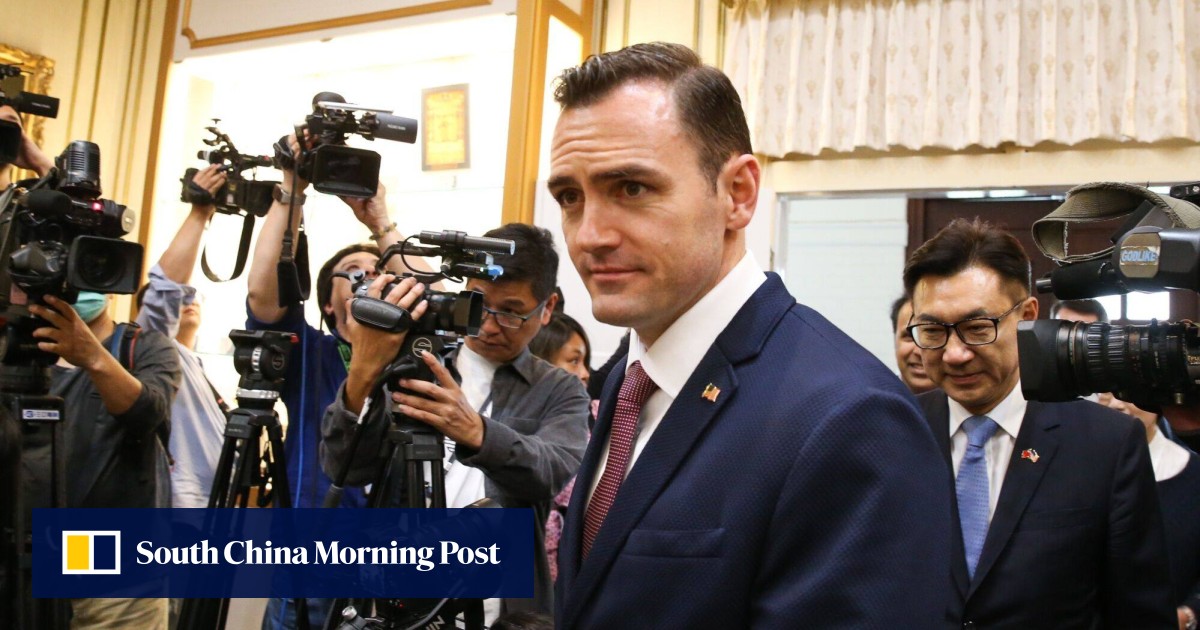Representative Cathy McMorris Rodgers, the House energy committee chair and a Republican from Washington, announced a committee mark-up for the bill on Thursday, which will be preceded by a hearing on legislative efforts to protect US data and national security from foreign adversaries.
“America’s foremost adversary has no business controlling a dominant media platform in the United States,” he added. “TikTok’s time in the United States is over unless it ends its relationship with [the Chinese Communist Party]-controlled ByteDance.”
Founded in 2012, ByteDance is a privately held company headquartered in Beijing that has successfully developed a video-sharing social media empire centred on TikTok and Douyin, its Chinese version.
TikTok owner makes AI a priority, as Sora disrupts the future of video
TikTok owner makes AI a priority, as Sora disrupts the future of video
But the company has been caught in the middle of escalating geopolitical tensions between Beijing and Washington, triggering legislative attention in the US relating to data security, surveillance and censorship concerns.
The new bill is not intended to censor speech or punish individual social-media users, according to its authors.
Instead it would require TikTok to furnish users a copy of their data in a format that can be imported into an alternative social-media application, they said, allowing users to transfer the content to another platform.
TikTok voiced concern on Tuesday. “This bill is an outright ban of TikTok, no matter how much the authors try to disguise it,” said company spokesman Alex Haurek.
“This legislation will trample the First Amendment rights of 170 million Americans and deprive 5 million small businesses of a platform they rely on to grow and create jobs.”
The new bill would also grant the US president new power to designate foreign social-media apps with more than a million annual active users as posing a national-security concern. Absent divestiture, a president could impose bans or restrictions on its usage.
In March last year, a similar bill was introduced in the Senate and backed by the White House to give the administration new powers to ban TikTok and other foreign-based technologies if they were deemed to pose national-security threats.
In the same month, the US Treasury-led Committee on Foreign Investment in the United States demanded that TikTok’s Chinese owners sell their shares or face the possibility of the app being banned. But the administration has yet to take action.
US executive order to keep Americans’ personal data from ‘countries of concern’
US executive order to keep Americans’ personal data from ‘countries of concern’
Beijing has said it would strongly oppose a forced sale of TikTok, explaining that ByteDance is subject to Chinese law on tech exports and that, as such, licences are required for the export of certain technology based on national-security concerns.
Several US states have also banned or partially banned TikTok from state-issued government devices. Some state-funded public universities have banned the app from being used on university networks.
In a separate but related effort on Tuesday, McMorris Rodgers and the House energy committee’s ranking Democrat, Representative Frank Pallone, introduced a bill that would prohibit data brokers from selling Americans’ “sensitive” personal data to China and other foreign adversaries.
The bill is also slated for mark-up on Thursday.
Additional reporting by Bochen Han in Washington







